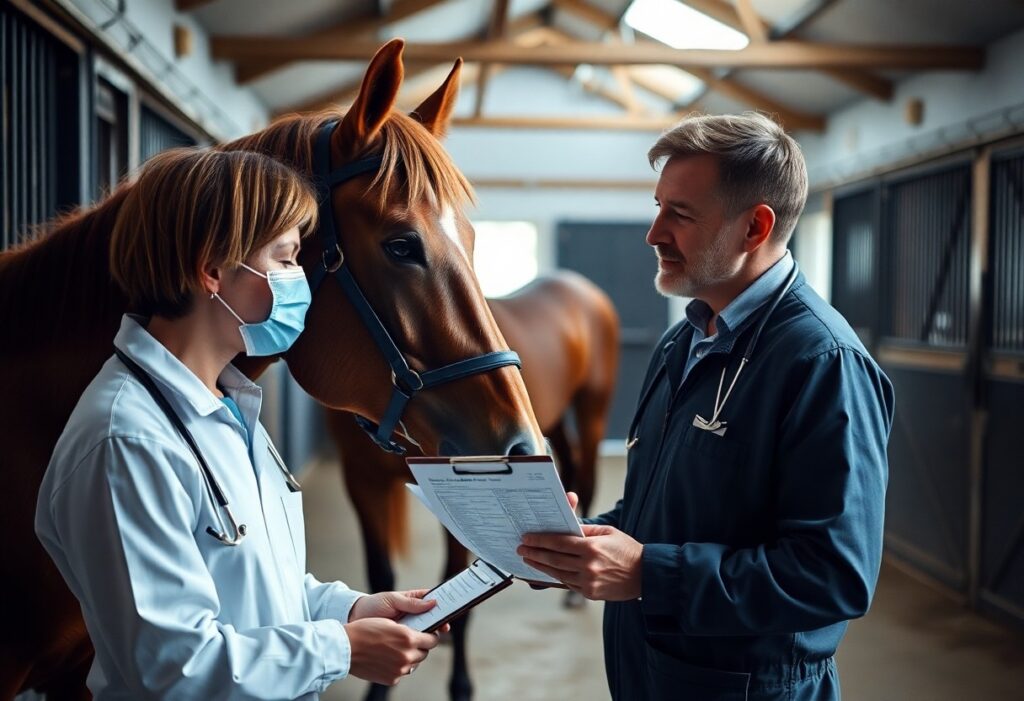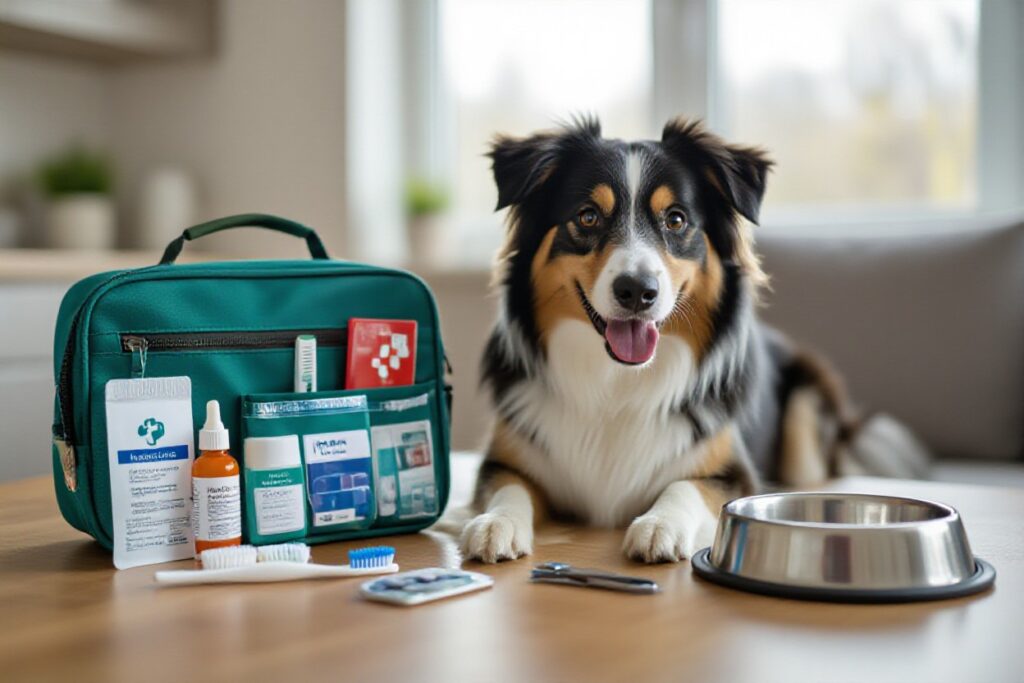Partnership with your veterinarian is important for ensuring your horse’s well-being and longevity. By asking the right questions, you can gain insights into your horse’s health needs, preventative care, and treatment options. Understanding your vet’s recommendations will empower you to make informed decisions regarding diet, exercise, and routine check-ups, fostering a collaborative approach to your horse’s health management. Your active involvement is key to sustaining a thriving and healthy partnership with your vet.
Opening the Dialogue: Essential Health Questions for Your Vet
Engaging in an open dialogue with your veterinarian strengthens your partnership in managing your horse’s health. Asking the right questions not only clarifies your horse’s specific needs but also fosters a trust-based relationship, enabling you to work collaboratively towards optimal care. Understanding the nuances of your horse’s condition, diet, and lifestyle can empower you to be a proactive owner, ensuring your equine companion remains in peak condition.
The Importance of Consistent Health Check-Ups
Regular health check-ups form a foundation for your horse’s long-term wellness. Annual or biannual visits allow early detection of potential health issues, promoting timely interventions. By establishing a routine, you ensure your horse receives necessary vaccinations, dental care, and nutritional assessments. This proactive approach minimizes health risks and enhances your horse’s quality of life, ensuring they remain vibrant and active.
Key Questions about Vaccinations and Preventive Care
Understanding vaccinations and preventive measures is key to maintaining your horse’s health. Engage your vet by asking about the recommended vaccine schedule, which can vary based on your horse’s age, lifestyle, and geographic area. Consider inquiring about the latest vaccines, potential side effects, and the importance of boosters. Additionally, explore preventive care options such as deworming and dental checks to create a comprehensive health plan tailored to your horse’s needs.
Specific questions can provide insights into your horse’s health requirements, such as: “What vaccines does my horse need based on their age and activity level?” or “How often should I update their vaccinations?” Ensuring your horse is up-to-date not only protects them but also those around them, particularly in communal settings like boarding facilities or during competitions. Your vet can also offer advice on timing for vaccinations to align with your horse’s training schedules. Understanding the rationale behind each vaccination can empower you to make informed decisions that enhance your horse’s immunity and overall health.
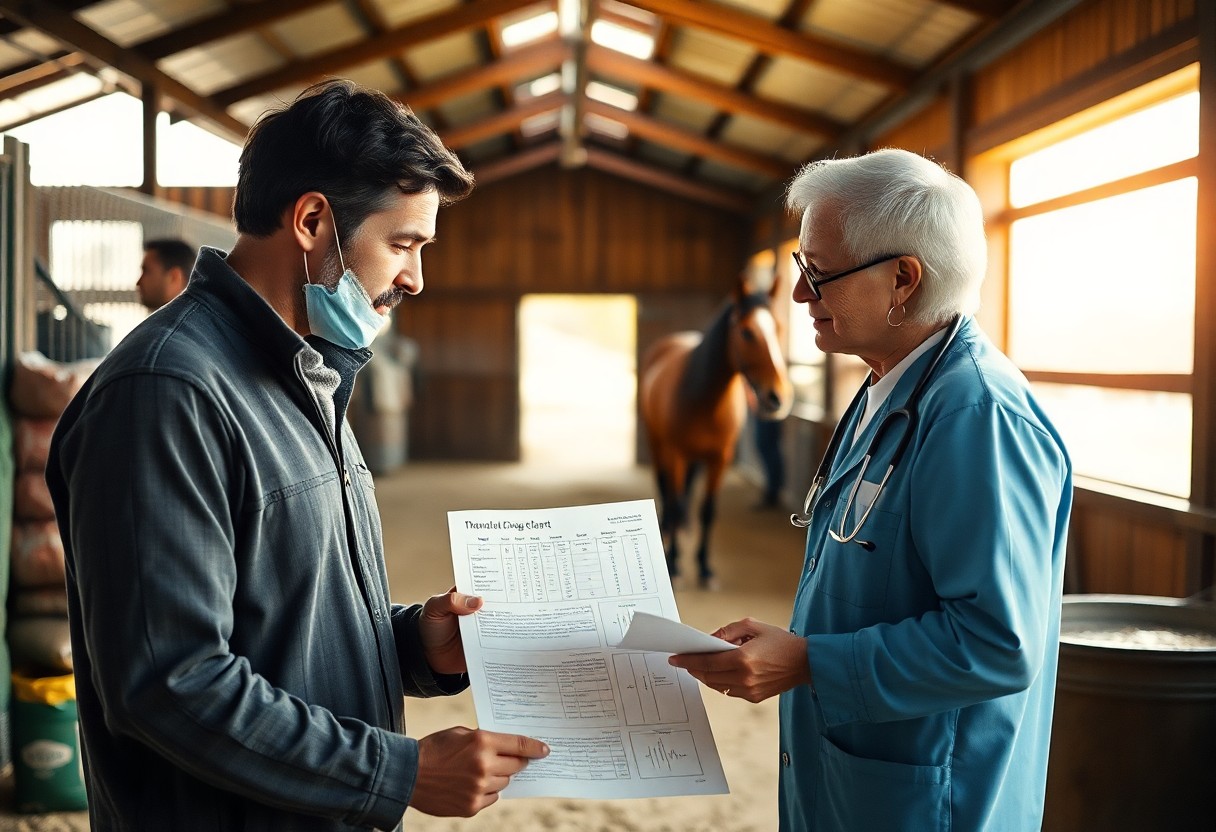
Nutritional Insights: Feeding Your Horse Right
Understanding your horse’s nutritional needs is fundamental for their health and performance. A well-balanced diet tailored to their age, activity level, and health status contributes significantly to their overall well-being. Formulating specific feeding strategies can prevent nutritional deficiencies and optimize your horse’s condition. Regular consultations with your vet will ensure that your horse receives the right combination of vitamins, minerals, and energy sources.
Inquiring About Diet and Nutritional Supplements
Discussing your horse’s diet with your vet can reveal gaps and opportunities in their nutritional regimen. Ask about the specific nutrients necessary for your horse’s well-being and the potential benefits of nutritional supplements. Factors such as workload, age, and health conditions will guide the recommendation for supplements like probiotics, omega-3 fatty acids, or electrolyte solutions to enhance your horse’s diet.
Understanding the Role of Feeding Schedules
Feeding schedules play a significant role in maintaining your horse’s digestive health. Horses thrive on a consistent feeding routine, ideally consuming small meals throughout the day rather than large quantities infrequently. This approach helps prevent digestive issues like colic and encourages a stable metabolism. Adjusting feeding times based on your horse’s activity level can further optimize their energy availability for performance. Consistency, in terms of both timing and quantity, directly influences nutrient absorption and overall health.
Recognizing Warning Signs: When to Seek Help
Being alert to your horse’s health is imperative for timely intervention. Subtle changes in behavior or physical condition can signal underlying issues that require prompt veterinary attention. Develop a routine observation practice, paying close attention to your horse’s appetite, movement, and demeanor. Any shifts, such as decreased energy or unusual aggression, can indicate discomfort or illness, urging you to consult your veterinarian without delay.
Identifying Normal vs. Abnormal Behaviors
Understanding what constitutes normal behavior for your horse helps you quickly pinpoint abnormalities. Typical horses demonstrate comfortable, relaxed postures and active participation in their environment. If your horse displays signs of lethargy, excessive pawing, or extreme aggression, these may be indicators of pain or distress, prompting further evaluation or a vet visit.
Questions to Ask About Symptoms and Conditions
When recognizing symptoms, asking the right questions ensures you gain comprehensive insights. Discuss specific behaviors you’ve observed, such as changes in eating habits or unusual vocalizations. Inquire about potential conditions tied to these symptoms, as well as possible diagnostic tests your vet may recommend to clarify the diagnosis and appropriate treatment options.
Questions aiming to gain clarity on symptoms should address the timeline and severity of the changes you’ve noted. Asking how long your horse has been exhibiting these behaviors can provide vital context. Discuss any new patterns such as increased sweating or persistent cough, and connect them to environmental changes or stressors. Gaining a full picture enables your vet to explore possibilities such as respiratory infections or gastrointestinal issues, facilitating quicker resolutions and care tailored to your horse’s needs.
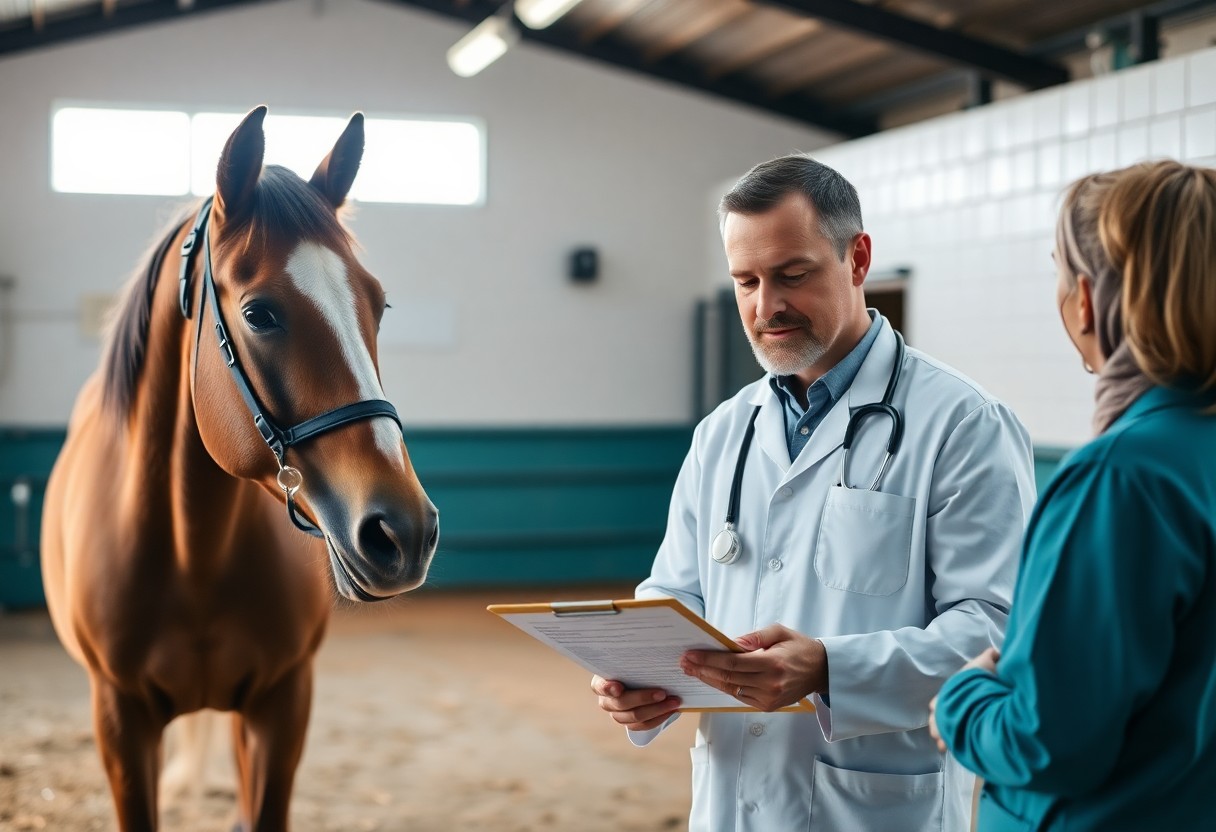
Treatment Plans: Collaborating for Optimal Recovery
Your veterinarian will work with you to create a customized treatment plan that targets your horse’s specific needs. Collaborating effectively ensures the plan aligns with your horse’s lifestyle and health goals. Discuss all available options, including alternative therapies and rehabilitation exercises, to promote optimal recovery. Clear communication about your horse’s response to treatment is crucial for making necessary adjustments along the way.
Discussing Treatment Options and Protocols
Inquiring about various treatment options empowers you to make informed decisions regarding your horse’s care. Discuss the efficacy of recommended treatments, including their duration and follow-up processes. Understanding the purpose behind each treatment will help you feel more confident in the protocols established, whether it involves surgery, rehabilitation, or alternative therapies.
Questions about Medications and Side Effects
Clarifying the medications prescribed is vital for your horse’s safety. Ask your veterinarian about potential side effects, dosage accuracy, and missed doses. Knowing how to administer the medication properly will ensure compliance and enhance treatment effectiveness. If your horse has pre-existing conditions, vocalize any concerns about drug interactions to tailor the plan effectively.
Ask specific questions about each medication’s side effects, as some may produce unwanted reactions, such as gastrointestinal upset or sedation. Understanding that medications like non-steroidal anti-inflammatory drugs (NSAIDs) can lead to kidney issues in susceptible horses is key. Assess the risk versus benefit of each medication prescribed, especially for long-term use. Your proactive engagement helps tailor your horse’s treatment to suit their unique health profile, ensuring their optimal recovery.
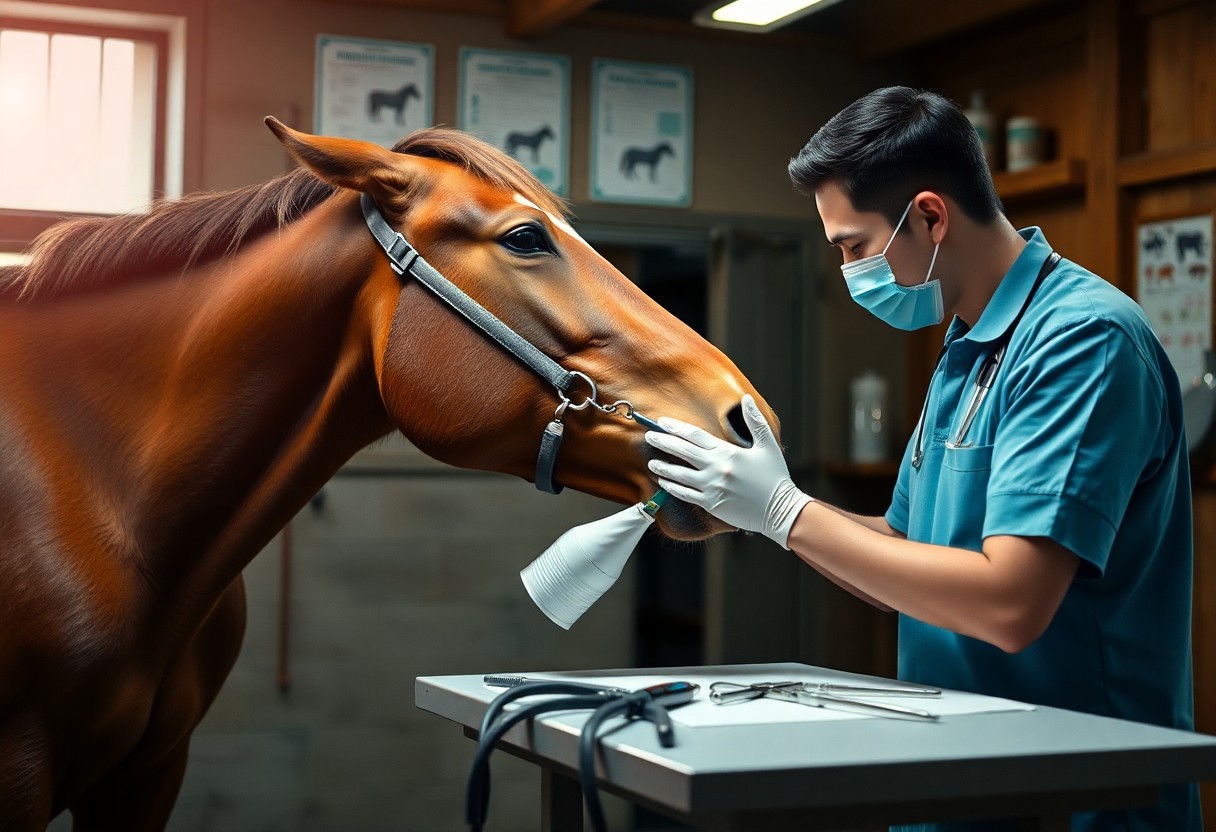
Building Long-Term Care Strategies
Establishing a long-term care strategy ensures your horse remains healthy and performs at its best. Collaborate closely with your vet to develop a proactive approach, encompassing routine check-ups, vaccination schedules, and tailored exercise regimens. By integrating your horse’s lifestyle and individual health considerations, you create a comprehensive framework that adapts to evolving needs over time.
Creating an Equine Wellness Plan Together
Crafting an equine wellness plan involves a thorough discussion of your horse’s specific requirements, habits, and environment. You and your vet will assess factors such as age, breed, and activity level, leading to a personalized regimen that covers nutrition, dental care, and preventive treatments. This collaborative effort lays the groundwork for sustained health and well-being.
The Role of Regular Communication in Preventive Care
Successful preventive care hinges on maintaining open, ongoing communication with your vet. Regular updates regarding your horse’s behavior, diet changes, or any emerging concerns allow for timely interventions and necessary adjustments to care strategies. Additionally, fostering a relationship where you feel comfortable discussing observations ensures your horse remains on a healthy trajectory.
Consistency in communication is key for effective preventive care. Providing your veterinarian with insights into your horse’s daily routine can highlight emerging issues before they escalate. For instance, if your horse displays subtle signs of discomfort or altered behavior, promptly sharing these observations enables your vet to perform targeted evaluations and modify care plans accordingly. This proactive approach not only addresses specific health concerns early but also reinforces your commitment to your horse’s long-term well-being, ultimately leading to better health outcomes and enhanced performance.
Final Words
Ultimately, engaging in a proactive dialogue with your vet empowers you to make informed decisions regarding your horse’s health. By asking the right questions, you cultivate a strong partnership that fosters better care and understanding of your horse’s unique needs. This collaboration not only enhances your horse’s wellbeing but also ensures that you are always equipped to address challenges that may arise. Prioritize this relationship to optimize your horse’s health journey.
FAQ
Q: What should I ask my vet during routine check-ups for my horse?
A: During routine check-ups, you can ask your vet about your horse’s overall health, any significant changes in behavior or appetite, vaccine schedules, and recommendations for nutrition or exercise tailored to your horse’s needs.
Q: How can I effectively communicate my observations about my horse to the vet?
A: Provide specific examples of your horse’s behavior, diet, and any changes you’ve noticed. Keeping a journal can help you track details over time, making it easier to communicate effectively with your vet during consultations.
Q: What should I do if I have concerns about my horse’s treatment or medication?
A: It’s important to voice your concerns directly with your vet. Ask for clarification regarding treatment plans, side effects of medications, and alternative options. This open dialogue can ensure you are both on the same page regarding your horse’s care.
